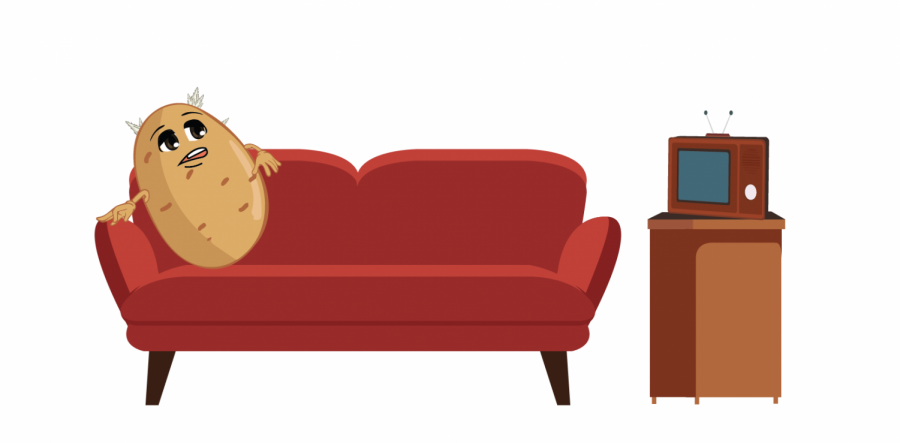Couch potato syndrome: balance key in binge-watching
March 1, 2017
Millennials have the distinct pleasure of being raised in a world where entertainment is, very literally, at their fingertips. Netflix, Hulu and YouTube allow people to watch a year’s worth of television in days.
The suspicion is that binge-watching, or watching large amounts of a television series in one sitting, is strictly a Millennial practice and a Millennial problem.
“… [W]hat I’ve seen is probably a lot of decreased socialization,” Wellness Counselor Polly Davis said. “Which … can obviously have an impact on your mental health.”
Davis attributed the large amount of binge-watching to not only being pleasurable, but also an activity for people who cannot find an extracurricular activity that fits their interests.
“… [E]specially if you have any social anxiety,” Davis said, “it probably feels safer to stay with Netflix, or something like that, versus going out and socializing and taking the chance on something negative happening in that way … and it’s easy.”
Though it can have negative mental effects, fitness coordinator at the Wellness Center, Kerry Brown, does not believe binge-watching is a pervasive issue in terms of physical fitness.
“I do see students use Netflix or other platforms, such as Hulu or YouTube while they’re on cardiovascular equipment,” Brown said.
However, if students decide to binge-eat while they binge-watch, according to Brown, it may become an issue.
“Any excess of caloric intake could potentially lead to weight gain,” Brown said. “But, if they just have just a single night where they binge-watch and binge-eat, it’s not necessarily a bad thing.”
The problem, Brown said, is hard to discern.
When a student binge-eats while they binge-watch, Brown said, it is not inherently a bad thing. Problems with weight gain arise when a student increases eating, but does not burn the excess calories.
Senior editorial journalism major, Shanell Peterson, hasn’t seen any negative physical effects with her own binge-watching.
“Occasionally I find that my whole day has been dedicated solely to YouTube,” Peterson said. “But I think that’s part of life balance. I work all the time, I gotta have some eat-a-bunch-of-graham-crackers-and-binge-watch-Casey-Neistat downtime.”
According to a 2016 study conducted by the Deloitte consulting firm, the majority of Millennials subscribe to digital streaming services, but 70 percent of all U.S. consumers binge-watch TV and average “five episodes per sitting.”
Though there can be negative effects of binge-watching, as well as binge-eating at the same time, and these issues do affect Millennials, overall binge-watching is not limited to Millennials, Davis said.
“That generation [Millennials] was definitely brought up in that environment, so it’s maybe easier because that’s your norm,” Davis said. “But I do think it’s affecting other generations, too.”
























